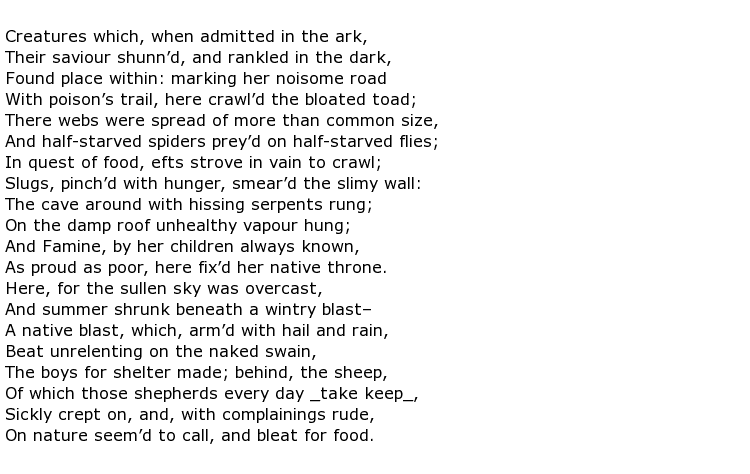 Charles Churchill was an 18th century English poet and satirist. As well as serving time as a minister he was also a much-feared, and respected, theatrical critic who, during his tragically short lifetime, was never afraid to voice his criticism of performances on the various London stages.
Charles Churchill was an 18th century English poet and satirist. As well as serving time as a minister he was also a much-feared, and respected, theatrical critic who, during his tragically short lifetime, was never afraid to voice his criticism of performances on the various London stages.
He was born in February 1732 in London and was educated at Westminster School where he soon developed a love for the classics. At the age of 16 he won a place at St John’s College, Cambridge and, curiously, was contracted to be married only two years later. It proved, eventually, to be an unhappy marriage. Following his studies, Churchill took up holy orders and became the curate in the small town of South Cadbury, in Somerset. He became a priest and then moved east to Rainham, in Essex, where he worked under his father for the next two years. On his father’s death he succeeded him as curate and lecturer.
It was not a well-paid existence though and he was only saved from debtors’ prison because he was helped by the master of his old school at Westminster, who was also the father of his good friend Robert Lloyd. Lloyd was a writer and encouraged Churchill to follow his example. Several satirical works followed including a piece called Rosciad which was an amusing attack on the perceived faults of actors on the London stage at that time. He exempted the great actor David Garrick from criticism though. At first it was published anonymously but was soon identified as the work of Charles Churchill. In fact he paid for its publication out of his own pocket and soon made a handsome profit on the venture, thus enabling him to pay off his creditors.
He became a fierce critic of actors and created unrest amongst them when spotted in the audience. An example was where, during a production of Cymbeline, the actor Thomas Davies tried to excuse his blundering performance in a letter to Garrick where he described

Not surprisingly, Churchill’s satirical attacks did not sit well with many in the acting profession and beyond and, as a still practicing minister, he was censured by the Dean of Westminster for his actions. He resigned from his offices in 1763, leaving him free to

He concentrated on his writing from then on and produced one highly controversial piece that same year called The Prophecy of Famine: A Scots Pastoral. It was still in his trademark satirical mode but, this time, there was much violence and suffering to be found within its lines. Here is an extract from this long poem which describes the desperate conditions that might be found in a cave dwelling, which Churchill mockingly calls an “ark”:

Other pieces of work included The Duellist (1763), The Candidate and Gotham (both 1764). All were attacks in some way on personalities that Churchill found reason to satirise with his pen and were seen in publications as well as in a collection of his poetry, published around the same time. His short life, though, was coming to an end.
Charles Churchill suffered a fever and died in Boulogne, France on the 4th November 1764, aged just 32.

